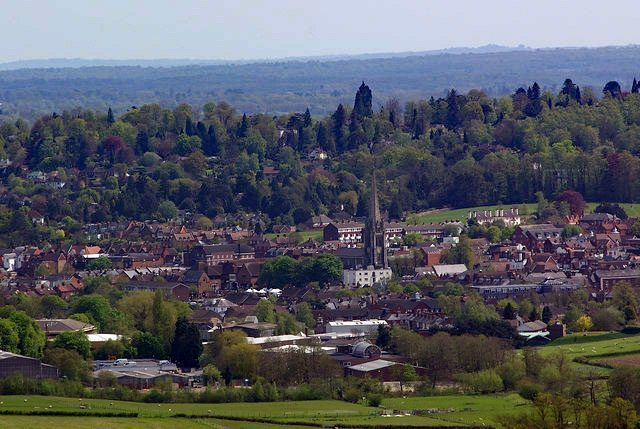SimplyFixIt, is one of the UK's top independent iPad repair specialists. Our head office is in Edinburgh, but we fix iPads for people all over the country, including in Dorking. No matter your location, we can fix your iPad!
Why trust us with your iPad repair? Our Apple Certified Technicians deliver unrivalled quality, outshining local independent computer shops. With an impressive track record in the Dorking area, we invite you to experience our top-tier service for all your iPad needs, especially iPad screen repairs.
Fast Repairs
Quality Components
Spread the cost
All Repairs Guaranteed
We understand the importance of your iPad, so we aim to return it within 48 hours of receiving it. At SimplyFixIt, we believe in precision over speed, but rest assured, your iPad will be in good hands. Once the repair, including any necessary screen repairs, is complete, we'll promptly notify you and arrange express delivery back to Dorking, either your home or work.
Happy SimplyFixIt Customers near Dorking
We do more than just fix iPads; our services include repairs for MacBooks, iPhones, and Windows laptops. If you're in the Dorking vicinity, you're likely close to someone that we've helped in the recent past. Below is a map of the people1 near Dorking who have used SimplyFixIt because of our fast, efficient, and high-quality repair service.
Ready for a seamless iPad repair experience? Choose your iPad below and follow the instructions. With SimplyFixIt, you're choosing reliability, quality, and peace of mind.
iPad Repairs for Schools in Dorking 🎓
Do you have iPads in your school or college that are broken? We can help. We have partnered with hundreds of schools across the UK , including several near you - e.g. Jubilee High School & Reed's School, to provide an easy & low-cost way to get iPads back into the classroom — where they belong. There's no need to pay for insurance, or pay Apple's exorbitant prices for iPad repairs. We know that you have enough to do as a teacher, so we look after collecting, fixing and returning the iPads from your school. Click here to visit the iPad Repair site for schools, where you can download our brochure or get more information.
Map of customers near you
1Please note that for data protection reasons, we've applied "fuzziness" to the location markers. Though not exact, these markers represent the general areas of our satisfied customers.

Not sure what model of iPad you have?
Enter your iPad's serial number below, or read our guide at what model iPad do I have?.
Check your Serial Number for free.
Choose an iPad
About Dorking
Dorking () is a market town in Surrey in South East England, about 21 mi (34 km) south of London. It is in Mole Valley District and the council headquarters are to the east of the centre. The High Street runs roughly east–west, parallel to the Pipp Brook and along the northern face of an outcrop of Lower Greensand. The town is surrounded on three sides by the Surrey Hills National Landscape and is close to Box Hill and Leith Hill.
The earliest archaeological evidence of human activity is from the Mesolithic and Neolithic periods, and there are several Bronze Age bowl barrows in the local area. The town may have been the site of a staging post on Stane Street during Roman times, however the name 'Dorking' suggests an Anglo-Saxon origin for the modern settlement. A market is thought to have been held at least weekly since early medieval times and was highly regarded for the poultry traded there. The Dorking breed of domestic chicken is named after the town.
The local economy thrived during Tudor times, but declined in the 17th century due to poor infrastructure and competition from neighbouring towns. During the early modern period many inhabitants were nonconformists, including the author, Daniel Defoe, who lived in Dorking as a child. Six of the Mayflower Pilgrims, including William Mullins and his daughter Priscilla, lived in the town before setting sail for the New World.
Dorking started to expand during the 18th and 19th centuries as transport links improved and farmland to the south of the centre was released for housebuilding. The new turnpike, and later the railways, facilitated the sale of lime produced in the town, but also attracted wealthier residents, who had had no previous connection to the area. Residential expansion continued in the first half of the 20th century, as the Deepdene and Denbies estates began to be broken up. Further development is now constrained by the Metropolitan Green Belt, which encircles the town.